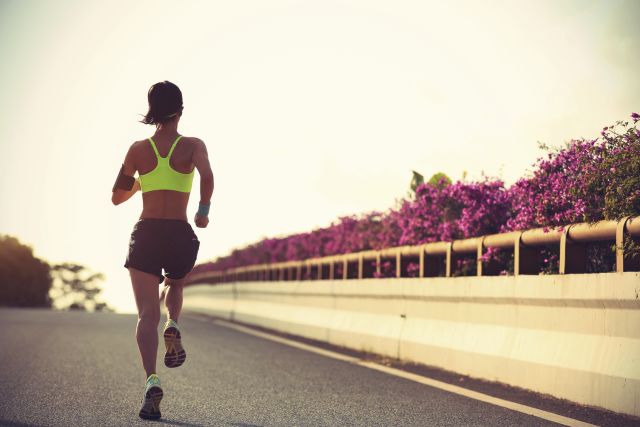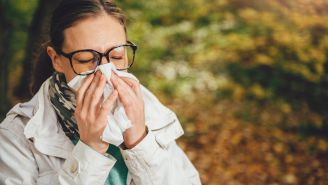Updated on June 21, 2024.
Staying in the groove of an exercise routine can be challenging enough. Add seasonal allergies into the mix and between the runny nose, watery eyes, congestion, sneezing fits, fatigue, and other annoying symptoms, it can be hard to be motivated to work out, especially outside.
According to the American College of Allergy, Asthma and Immunology (ACAAI), pollen is one of the most common seasonal allergy triggers—but you don't have to let allergies take control of your workout plans.
Learn about ways to exercise with allergies to keep your fitness goals on track during the sneezing season.
Use outdoor exercise to help control symptoms
Although you can't exercise away your allergies, exercise may help keep allergy symptoms at bay.
"Some people find that once they start working out they might feel a little bit better,” says Mark Schecker, MD, an allergist and immunologist with Grand Strand Medical Center in Myrtle Beach, South Carolina. “That has to do with shifting in chemical mediators and hormones that are secreted as a result of exercise." The end result? Your symptoms may temporarily subside.
Time your workout right
Pollen count varies during the seasons and time of day.
"As a general rule, we try to advise people if they're going to be exercising to avoid the times of the day and the times of the season when the pollen counts are highest,” says Dr. Schecker. He says that most pollens tend to be highest in the early morning hours and lower later in the afternoon. The ACAAI warns that windy and warm days can bring about a surge in pollen counts, so check your local pollen count each day before heading outside.
Keep your eyes protected
If you feel good enough to exercise outside, great—but don’t give pollen a chance to trigger symptoms.
"Anything you can do to cover the surfaces or areas where the pollen is going to be entering the body is going to be a help," says Schecker. Sunglasses can help protect and keep pollen out of the eyes. Depending on how hot or cold it is, cover your nose or mouth. Some say that breathing in through the nose instead of your mouth is effective, since the nose acts as a filter. But does it work?
“If you're bringing pollen into your nose and you're somebody who has seasonal nasal allergies, I don't see how that's going to benefit you,” Schecker says.
Try medicine to ease symptoms
While allergy symptoms are unpleasant, they can usually be managed.
"For seasonal allergies, usually antihistamines or nasal steroid sprays are the most effective,” Schecker says. “We usually prefer the newer generation antihistamines over the older ones. They don't make you drowsy and dry you out.”
If you still have problems with exercise and allergies, Schecker recommends getting an allergy evaluation. “There are many things people can do that will allow them to return to their exercising,” he says.
Exercise indoors when pollen levels are sky-high
If the only time you can exercise on a given day is when pollen count is high or you just don’t want the added aggravation, head for an air-conditioned gym. According to Schecker, air conditioning does a pretty good job at filtering out pollen. If you can’t make it to a gym, an at-home workout (especially if the AC is on) will do the trick, too.






